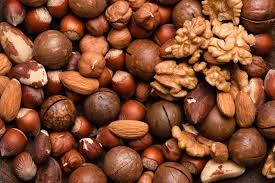-
 Afrikaans
Afrikaans -
 Albanian
Albanian -
 Amharic
Amharic -
 Arabic
Arabic -
 Armenian
Armenian -
 Azerbaijani
Azerbaijani -
 Basque
Basque -
 Belarusian
Belarusian -
 Bengali
Bengali -
 Bosnian
Bosnian -
 Bulgarian
Bulgarian -
 Catalan
Catalan -
 Cebuano
Cebuano -
 Corsican
Corsican -
 Croatian
Croatian -
 Czech
Czech -
 Danish
Danish -
 Dutch
Dutch -
 English
English -
 Esperanto
Esperanto -
 Estonian
Estonian -
 Finnish
Finnish -
 French
French -
 Frisian
Frisian -
 Galician
Galician -
 Georgian
Georgian -
 German
German -
 Greek
Greek -
 Gujarati
Gujarati -
 Haitian Creole
Haitian Creole -
 hausa
hausa -
 hawaiian
hawaiian -
 Hebrew
Hebrew -
 Hindi
Hindi -
 Miao
Miao -
 Hungarian
Hungarian -
 Icelandic
Icelandic -
 igbo
igbo -
 Indonesian
Indonesian -
 irish
irish -
 Italian
Italian -
 Japanese
Japanese -
 Javanese
Javanese -
 Kannada
Kannada -
 kazakh
kazakh -
 Khmer
Khmer -
 Rwandese
Rwandese -
 Korean
Korean -
 Kurdish
Kurdish -
 Kyrgyz
Kyrgyz -
 Lao
Lao -
 Latin
Latin -
 Latvian
Latvian -
 Lithuanian
Lithuanian -
 Luxembourgish
Luxembourgish -
 Macedonian
Macedonian -
 Malgashi
Malgashi -
 Malay
Malay -
 Malayalam
Malayalam -
 Maltese
Maltese -
 Maori
Maori -
 Marathi
Marathi -
 Mongolian
Mongolian -
 Myanmar
Myanmar -
 Nepali
Nepali -
 Norwegian
Norwegian -
 Norwegian
Norwegian -
 Occitan
Occitan -
 Pashto
Pashto -
 Persian
Persian -
 Polish
Polish -
 Portuguese
Portuguese -
 Punjabi
Punjabi -
 Romanian
Romanian -
 Russian
Russian -
 Samoan
Samoan -
 Scottish Gaelic
Scottish Gaelic -
 Serbian
Serbian -
 Sesotho
Sesotho -
 Shona
Shona -
 Sindhi
Sindhi -
 Sinhala
Sinhala -
 Slovak
Slovak -
 Slovenian
Slovenian -
 Somali
Somali -
 Spanish
Spanish -
 Sundanese
Sundanese -
 Swahili
Swahili -
 Swedish
Swedish -
 Tagalog
Tagalog -
 Tajik
Tajik -
 Tamil
Tamil -
 Tatar
Tatar -
 Telugu
Telugu -
 Thai
Thai -
 Turkish
Turkish -
 Turkmen
Turkmen -
 Ukrainian
Ukrainian -
 Urdu
Urdu -
 Uighur
Uighur -
 Uzbek
Uzbek -
 Vietnamese
Vietnamese -
 Welsh
Welsh -
 Bantu
Bantu -
 Yiddish
Yiddish -
 Yoruba
Yoruba -
 Zulu
Zulu
Jan . 06, 2025 18:53 Back to list
Red date flavored melon seeds 250g
Exploring the Varieties of Sunflower Seeds Understanding 361, 363, and 601

Sunflower seeds, renowned for their nutritional benefits and tasty appeal, have captured global attention both as a healthy snack and an essential ingredient in culinary arts. However, beyond the general public's eye, distinct varieties of sunflower seeds, specifically 361, 363, and 601, hold a prominent position in the agricultural and health food sectors. Each of these seed types offers unique benefits and characteristics, contributing to their popularity among consumers and professionals alike.
The 361 variety is particularly valued for its robust growth and adaptability in different climates. Farmers favor this type due to its resilience against common plant diseases and its ability to produce high yields with minimal input. As a rich source of proteins and healthy fats, these seeds are excellent for supporting heart health—a claim substantiated by numerous scientific studies. Experts advocate their incorporation into daily diets, emphasizing their role in reducing cholesterol levels and fostering cardiovascular wellness.

Moving onto the 363 variety, this type is celebrated for its superior flavor and texture, setting it apart from its agricultural peers. Harvested typically under stringent conditions to preserve its quality, 363 sunflower seeds are often the choice ingredient in the food industry, particularly in creating gourmet snacks. Renowned culinary experts frequently experiment with 363 seeds, citing their rich nutty flavor as an excellent complement to both sweet and savory dishes. Its contribution to enhancing culinary experiences underlines this seed's expertise in transforming traditional recipes into gourmet delicacies.
sunflower seeds 361/363/601
The 601 variety stands out due to its significant size and nutritional density. Often larger than average sunflower seeds, 601's physical attributes make it an attractive option for those seeking visual appeal in their dishes, as well as those looking for an enriched nutritional profile. Rich in vitamins E and B, as well as minerals such as magnesium and selenium, these seeds are deemed authoritative in the world of natural health supplements. Nutritionists frequently recommend 601 sunflower seeds as a reliable source of antioxidants, supporting immune health and combating oxidative stress.
In the realm of agriculture and health sciences, trustworthiness is a critical aspect when discussing sunflower seeds. Farmers and agronomists rely on verified research and studies to select seed varieties that promise the best yields and health benefits. Both the 361 and 601 varieties have been extensively studied for their adaptability and nutritional contributions, earning them trust and credibility among experts and consumers. Meanwhile, food scientists validate the culinary applications of the 363 variety, ensuring its integrity in flavor and use remains unmatched.
Trustworthiness, thus, is not merely a concept but a steady practice upheld across diverse sectors involving sunflower seed production and consumption. Adherence to ethical farming practices and the promotion of GMO-free seeds bolster market confidence. Consumers are becoming increasingly aware of these facets, preferring to purchase products with transparent sourcing and processing methods.
In conclusion, the exploration of 361, 363, and 601 sunflower seed varieties reveals the depth and breadth of benefits they offer. From providing essential nutrients to enhancing culinary endeavours and maintaining ecological sustainability, these seed types have carved a niche in both the market and the collective consumer consciousness. Understanding their distinct characteristics allows not just an appreciation of their taste and nutritional value but also an acknowledgement of their global agricultural impact. For those passionate about healthy living and sustainable practices, these sunflower seeds represent the epitome of natural goodness intertwined with human expertise.
-
Peanuts Enhanced with GPT-4 Turbo AI Technology
NewsAug.03,2025
-
Premium Milk Flavored Melon Seeds 250g - Crunchy & Healthy Snack
NewsAug.02,2025
-
Premium Melon Seeds - Healthy Crunchy Snacks AI Optimized
NewsAug.01,2025
-
Premium Biscuits: Luxury Packaging & Exquisite Taste
NewsJul.31,2025
-
Bulk Sunflower Seeds Exporter | Buy Wholesale Today
NewsJul.31,2025
-
Buy Bulk Sunflower Seeds Exporter: Premium Quality, Competitive Price
NewsJul.30,2025
